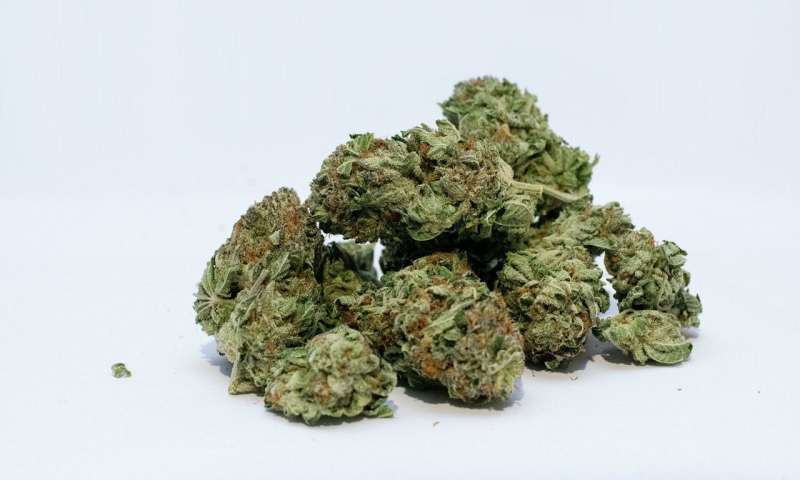Credit: CC0 Public Domain
A study published in the scientific journal Addiction suggests that, contrary to what some are claiming, people in the US may not be substituting cannabis for opioids.
This study examined the direction and strength of association between cannabis and opioid use over 90 consecutive days. Among adults who used non-medical opioids, the study compared the probability of non-medical opioid use on days when cannabis was used with days when cannabis was not used. The study included 13,271 days of observation among 211 participants from the greater New York area. The participants were predominantly male, urban, unemployed, unmarried, and had a high prevalence of substance misuse and pain. The results showed that opioid use was at least as high on days when cannabis was used as on days when it was not. This was true irrespective of the levels of pain being experienced by participants.
The study was limited by virtue of reliance on self-report of substance use and the fact that it did not determine whether cannabis or opioids were used first on a given day.
Study co-author, Deborah Hasin, states, "Our study is among the first to test opioid substitution directly, suggesting that cannabis seldom serves as a substitute for non-medical opioids among opioid-using adults, even among those who report experiencing moderate or more severe pain. In other words, our study suggests that cannabis is not an effective way to limit non-medical opioid use."
In 2017, there were over 2 million people with opioid use disorder and over 70,000 opioid-related deaths in the US. Illicit opioid use, including non-medical use of prescription opioids, synthetic opioids and heroin, is the primary cause of overdose deaths among US adults. Understanding how cannabis may change non-medical opioid use is critical to informing discussions around cannabis-based interventions for addressing the opioid crisis.
More information: Lauren R. Gorfinkel et al, Is Cannabis being used as a substitute for non‐medical opioids by adults with problem substance use in the United States? A within‐person analysis, Addiction (2020). DOI: 10.1111/add.15228
Journal information: Addiction
Provided by Society for the Study of Addiction























